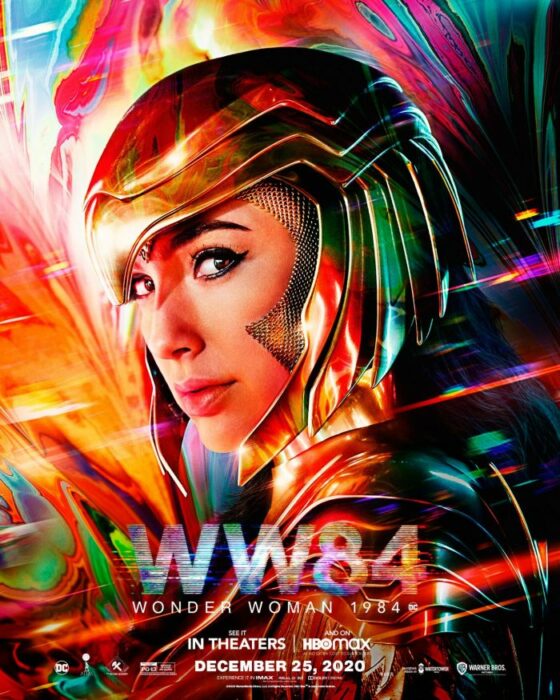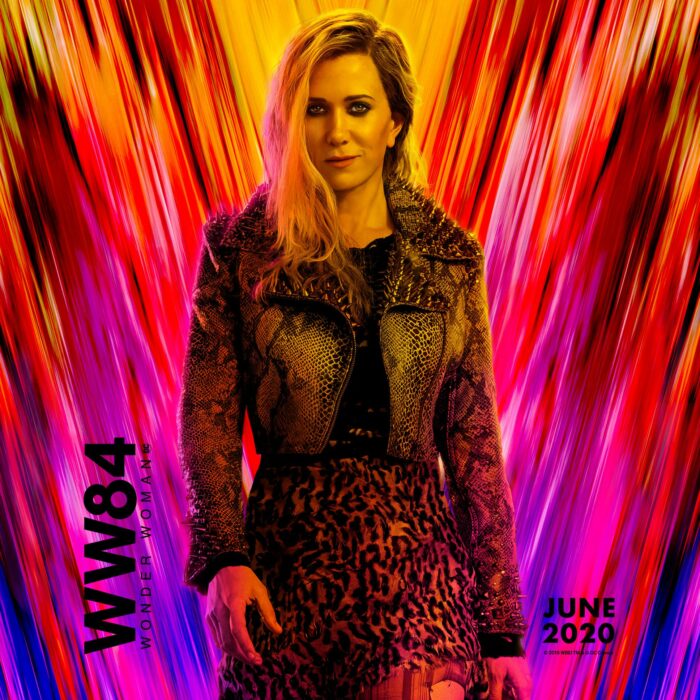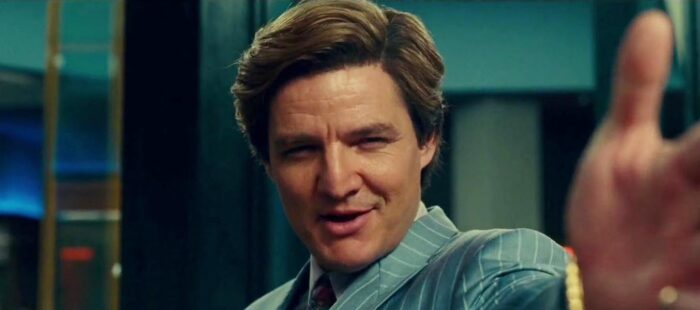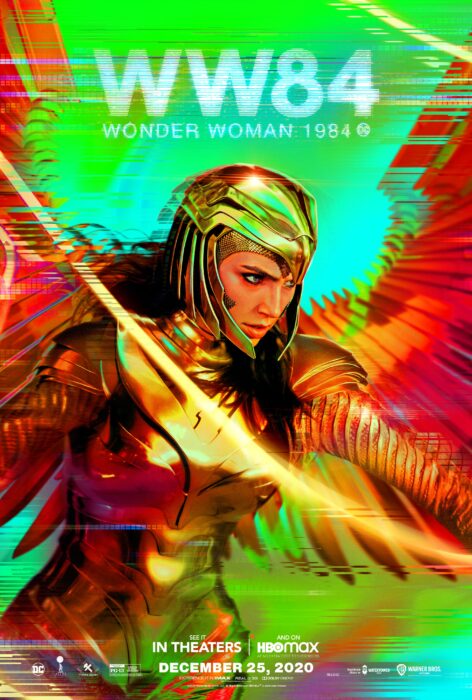Wonder Woman 1984 v. Disneyfied Imagination: A Spoiler-Filled Defense
Many negative reviews of Wonder Woman 1984 have an undergirding belief: that superhero films are meant to help fans indulge in wish-fulfillment.
Notice: To explore what the film actually means to do, we must indulge in full spoilers for Wonder Woman 1984.
I think this is why the film’s “monkey’s paw” motif, the wish-granting Dreamstone, strikes one reviewer as “hackneyed.” The film paradoxically asks us to both appreciate the wish as a fundamental aspect of human dignity, and realize that our wishes must be relegated by a hierarchy of values.
Even positive takes on Wonder Woman 1984 often characterize the film as escapist. So the story’s exploration of wishes strikes some viewers as an ugly redundancy, like Aladdin wishing for more wishes.
But I think this Disneyfied view of the superhero genre is exactly what Wonder Woman 1984 sets out to refute—and I think the film refutes this escapism in a most edifying manner.
What do I mean by ‘Disneyfied imagination’?
Let me start with a necessary caveat. I am a regular consumer of Disney movies. I bought my wife a Beauty and the Beast combination engagement and wedding ring because of the personal significance of the film to our relationship. So I am a fan of Disney.
But aren’t even the biggest Disney fans slightly troubled by the entertainment industry mogul’s hold on the market, even a little bit?
Art should always be a little bit questionable, a little bit suspicious. Art should have to earn our attention, not assume it. You don’t really believe that wishing upon a star, no matter who you are, will come true. But you watch the movies of a company that has imprinted that theme song in your head enough times that you’re probably hearing it now, based on my imperfect quotation.
 Wonder Woman v. unhealthful wishes
Wonder Woman v. unhealthful wishes
Wonder Woman 1984‘s plot directly explores the assumption that superhero stories are about wish-fulfillment. When a new hire at the Smithsonian, Barbara Minerva, shares her confusion over an odd item in her new inventory with Diana Prince, Wonder Woman’s Amazon training kicks in. She quickly recognizes the Latin inscription on its outside: this is a wishing stone. Diana doesn’t believe this object actually holds mystical power. But she casually touches the stone and wishes for the impossible: that she could again be with the heroic Steve Trevor. Back in Wonder Woman [1918], Steve had helped Diana believe that the world of men outside of Themiscyra is worthy of love.
Wishing is a very important human power. It’s nigh-unextractable from the human imagination itself. In J. R. R. Tolkien’s “Mythopoeia,” his timeless defense of the role of imagination in making life meaningful, Tolkien wrote:
Whence came the wish, and whence the power to dream,
or some things fair and others ugly deem?
Tolkien contends that our very moral instinct depends upon the power to wish. But if that is true, it means we ought to be careful about how we use this power.
Critics have rebuked Wonder Woman’s indulgence in her relationship with Steve Trevor as irresponsible. But her lapse in responsibility actually happens much earlier in the film. Diana held a stone that claims to be wish-granting, when she knows that supernatural entities like the Duke of Deception exist. That she entertained the wish at all was an error—a very sympathetic, human error made by an Amazon who has begun to forget to think like one.1
Remember, wishing is still a human act. Your to-do lists are practical wishes. Degree programs are predicated on wishes about the future; inventions stem from wishes in technology; medicines begin as wishes of the healthcare community. Prayers are, at least in part, wishes surrendered to God’s providence. The superhero genre itself is based on a wish to be strong when we are weak, to be responsible when we are strong, to be reliable when we are responsible.
That is the lesson of Wonder Woman 1984‘s opening sequence. It’s one of the most inspiring sequences in the film. Youthful Diana has enjoined a harrowing gauntlet to prove herself against the older Amazons. But she’s knocked from her horse by a tree branch, and later denied her final spear-throw by a disapproving Antiope. This older Amazon warrior teaches Diana that ignoble short-cuts are the wrong way to pursue wish-fulfillment.
At first the lesson was lost on me. Frustrated, I gave my wife a slack-jawed look of outrage at Antiope’s interference, and my wife returned the sentiment with equal fervor. Only later did we realize that our identification with Diana had caused us to lose sight of Antiope’s wisdom.

“June 2020” [sic].
Wonder Woman v. unheroic wishes
The assumption that we only want identification with the superhero marks our failure to understand the genre.2 We don’t just wish to be better. We wish for others who are better, and we wish to admire them for it. Admiration is only partly identification mediated by wish-fulfillment: it is also a desire to find someone worthy of extraordinary gratitude.
One could say that Diana’s friend Barbara Minerva makes exactly this mistake. Barbara does not separate her admiration for Diana Prince from her desire to identify with Diana’s best qualities. Instead, Barbara wishes to be exactly like Diana—setting her on the path to become Cheetah, the film’s secondary but deeply compelling villain. She is already dangerous when she appears to match Wonder Woman’s power. Then, even worse, Barbara receives feral superpowers and a beastly form through Maxwell Lord’s insidious wish-granting exchange program.
Barbara wished away her own identity, and in the process loses touch with her imago Dei (image of God) as well. It’s a beautiful depiction, however unintended, of the Judeo-Christian understanding of evil.
Again, critics often suggest superhero stories work as mere wish-fulfillment, as if the genre is similar to Barbara Minerva’s resentment-fueled fantasy. I can’t say I often hear fans of superhero movies speak that way, at least not when speaking as fans. I suspect some of the disconnect arises when viewers look at these imaginative productions, rather than looking through them, a method offered by C. S. Lewis in “Meditations in a Toolshed.”
But I think the difference is greater. I think the indulgent wish-fulfillment theory is a projected attempt, or memory from younger years, to understand why people continue to enjoy the superhero genre.
 Wonder Woman v. selfish wishes
Wonder Woman v. selfish wishes
In fact, the film’s villain Maxwell Lord is exactly the manifestation of this distorted wish-fulfillment. He wishes to be the wishing stone, so that, as long as you touch him, whether in person or through the television, with your wish, it will come true. That means he literally attempts to guarantee that all people, regardless of their expectations, can get what they want from him. But his deceptive wish-granting strips his beneficiaries of their dignity, in the same way denigrators of the superhero genre believe superhero stories already do.
This critical view of the genre says something like, “If I were a fan of such fare (and that is a mighty big If), I would wish to be this preposterous hero.” But if that’s your strategy to experience the movie, and you find the movie so dissatisfying, perhaps it’s because you’re actually watching it the wrong way (the Maxwell Lord and Barbara Minerva way). You might as well believe the only way to enjoy pizza is when it’s cold, so you always eat pizza that way, and never enjoy it. Perhaps it is fatal to enter the superhero genre with such self-directed wishes. Perhaps it is instead better to start with the wonderful, imaginative premise that superheroes could be real.
It’s not the same premise to pretend you are a superhero and to pretend the superhero could be real. This is like not only believing you should not only eat your pizza cold, but believing everyone else prefers pizza that way. No wonder you think you don’t like pizza. You haven’t eaten it properly.
Wonder Woman 1984 can subvert our idolatrous wishes
Wonder Woman 1984 reminds us about the distinction between imagination and wishing. This distinction is vital, because the purpose of our imagination is to help our reason seek truth, when our desire-based wishes can be tempted by lies.
Wishes do not always stem from a place of good will, or from a full understanding of what we wish for. That’s a fact that Disneyfied imagination will smooth over with the image of wishing “upon a star.” But anyone who knows a bit about medieval astronomy knows the effects of stars are not always benevolent. (Just read C. S. Lewis’s Discarded Image.)
We live out our wishes with countless little choices directed at their fulfillment. But if we don’t discern between our wishes’ wisdom and ill will, do we know things will end as well as we unreflectively believe? Our imaginative efforts can help us to envision our wish-fulfillment writ large. And if we try this honestly, we might find there’s a monkey’s paw element to the wishes we pursue every day.
In the film, that is the point of Wonder Woman’s major moral failing. When she realizes this, it drives her toward her most moving sacrifice of repentance. That’s how Wonder Woman 1984 pushes us to identify with Diana Prince’s motivations in making her wish, then pulls us to the conviction that she needs to renounce the wish. Meanwhile, the film challenges us to ask how our own wishes have gone wayward. Are there lies about our moral duties underlying our actions? Probably. And we can only reform our actions after we begin surrendering our wishes to higher values.
The purpose of the imagination is not to merely make our wishes come true, but to make our souls long for the truth. I certainly don’t wish to be Wonder Woman, and didn’t wish this while watching the movie. But pretending that Wonder Woman 1984 was true reminded me to hate my convenient lies—or, you might say, my performative wishes. Wishing upon a star, or a Dreamstone, is no match for wonder at the truth.





























I actually liked Wonder Woman 1984 and its message of “be careful what you wish for”, and was quite shocked by so many negative reviews for the film! But reading this article definitely opened my eyes to the movie’s deeper message, and it made me appreciate the film (and Wonder Woman) all the more.
There is so much truth in this article— how several of the characters reflect today’s society in so many different ways. It makes me thing of the lyrics to one of TobyMac’s songs “I don’t want to gain the whole world and lose my soul”. The more you wish for things (based on lies such as popularity, envy, hate, power, fear, greed, selfishness, etc.), the more you lose yourself— the YOU who God made you to be.
Thank you so much for sharing this beautiful article!
I am sorry I didn’t see this sooner, but I am so glad you enjoyed the piece. My wife and I both felt very edified after leaving the theatre, so we were surprised about how much backlash it received. I’m glad there are people who feel as we do!